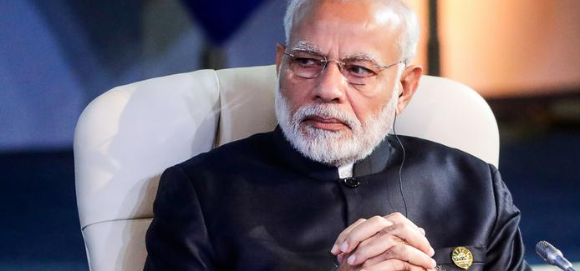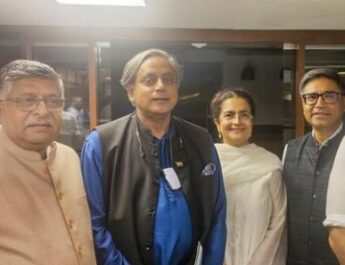Uniform Civil Code: There is a famous case of 1889. Just 10 years old Bengali girl Phulmoni Dasi got married to 30 years old Harimohan. Phulmoni Dasi died after the honeymoon. The post-mortem report revealed that the cause of death was injury caused by forcible intercourse.
A case of rape was registered against Harimohan. The trial began in the Calcutta Sessions Court in 1890, but the matter got stuck. In fact, in section 375 of the IPC, there was a provision not to consider forced sex with the wife as rape.
At that time, the minimum legal age for marriage was 10 years and Phulmoni Dasi had crossed it. That’s why Harimohan got only 1-year sentence. However, this case has opened the way for increasing the age of consent in the coming times.
Know how Hindu and Muslim personal laws have changed over time and in what form they exist today.
In ancient India, law and order used to run on the basis of Vedas, Smritis, and customs. When Muslims came to India in the medieval period, they brought their legal system along with religion. Shariat law prevailed in criminal matters and there were not very clear rules for the settlement of civil matters. Most of the disputes were settled at the village-community level.
Sharia law was very strict. In this, punishment like chopping off-hand for theft and murder of someone was also considered as a dispute between the two. In which the relatives of the victim could have forgiven the murder or settled if they wanted. AA Faizi, a great jurist of Muslim Law, wrote – Islamic Law or Sharia was never implemented in its pure form in India.
The change started after the arrival of the British. In 1765 the East India Company got the revenue rights of Bengal, Bihar, and Odisha. With this, the entire judicial administration of civil cases came into the hands of the East India Company. Warren Hastings began creating a new judicial plan and courts as soon as he became Governor-General in 1772.
The British were negligent in the translation of religious texts.
The British claimed that now we will solve all the disputes between Indians. Now the question arose what would be the basis of the decisions? The British decided that criminal cases would be decided on the basis of Shariah for the time being. Leaders of different religions will be used to settle civil matters.
If there is a quarrel between a Hindu and a Muslim, it will be decided according to the religion of the defendant i.e. the one who has been accused. Despite the religion being the same, there was a big difference in the customs of the people. This confused the British.
By the 18th century, the British started codification of Hindu law and Muslim law. For this, a project of translation of religious texts of Muslims and Hindus was started. For Islam, the British got the Hanafi law book Al-Hidaya translated.
Similarly, Hindu Smriti, Yajnavalkya Smriti, and Vedas were translated for Hindu law. Translator Charles Hamilton did not know Arabic, so first Arabic was translated into Persian and then from Persian to English.
Codification of Criminal Law and Interference in Hindu Law
Lord William Bentinck became the Governor General in 1828. At that time Sati system was prevalent in India. After the death of her husband, the widow had to burn in her husband’s funeral pyre. Some social reformers like Raja Ram Mohan Roy were trying to stop it.
In 1834, the first Law Commission was formed in India. Its president was Lord Macaulay. Macaulay prepared the first draft of the IPC. Apart from this, he suggested Lex Losai i.e. uniform law for the whole country.
Another Charter Act came in 1853 and another Law Commission was formed. Sir John Romilly was the chairman of this law commission. He prepared the drafts of CPC (rules related to the procedure for enforcement of civil law), CrPC (rules related to the process of sentencing and related rules), and IPC (rules related to what punishment should be for which crime).
In 1861, the third Law Commission was formed. It created the Indian Evidence Act (rules related to evidence witnesses), the Indian Contract Act (rules related to employment, purchase, and sale), and The Oath Act. After the coming of these laws, by 1873 the codification of criminal law in India was almost complete.
The Age of Consent Act was brought in 1891. The minimum age of consent for sex for girls was raised from 10 years to 12 years.
A major step was taken in 1937 when the Shariat Act 1937 was passed. It had rules related to marriage and the succession of Muslims. In 1939, the Dissolution of Muslim Marriage Act was passed. In which the rules of divorce for Muslim women were decided. Apart from this, neither the British tampered much with Muslim law nor there was any significant change after independence.
Hindu code bill after independence
In 1951, Ambedkar introduced the Hindu Code Bill in Parliament with the support of Nehru. Some of its main provisions were…
- Rules related to the distribution of property among widows, sons, and daughters after death among Hindus
- Provisions related to marriage, in which Hindu men are prohibited from marrying more than one
- Hindu women have the right to divorce
- The debate went on for three days in Parliament. It was said in protest that why tamper with the law of Hindus only? A big demonstration started outside the Parliament under the leadership of Karpatri Maharaj. He openly challenged Jawaharlal Nehru to debate this bill. Rashtriya Swayamsevak Sangh, Hindu Mahasabha, and other Hindu organizations were also protesting with him.

Nehru postponed the Hindu Code Bill due to all the protests and the general elections being near. Ambedkar resigned from the post of Law Minister over issues including the Hindu Code Bill. However, Nehru later got the provisions of the Hindu Code Bill passed in parts between 1955 and 1958…
- Hindu Marriage Act, 1955
- Hindu Succession Act, 1956
- Hindu Minorities and Guardianship Act 1956
- Hindu Adoption and Maintenance Act, 1956
- The rule of one marriage came into force among the Hindus only after the Hindu Marriage Act came into force. Otherwise, before 1955, Hindus could marry as many women as they wanted. The last major amendment in Hindu law took place in 2005. When in the Hindu Succession Act, daughters have also been given equal rights as sons in the father’s property.
After independence, only one big law was passed which affects Muslim law. Under the Muslim Women Bill, 2019, cases of triple talaq were made a punishable offence.




